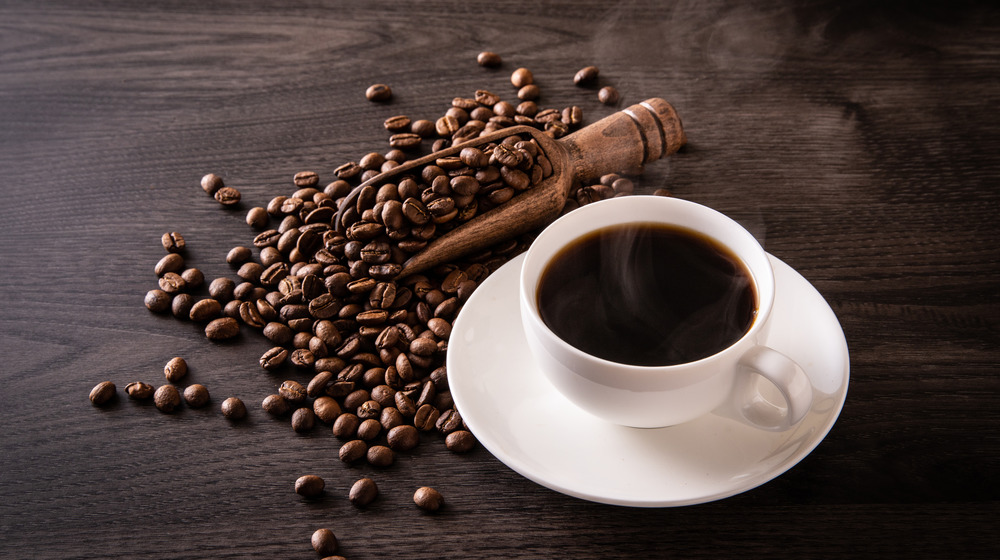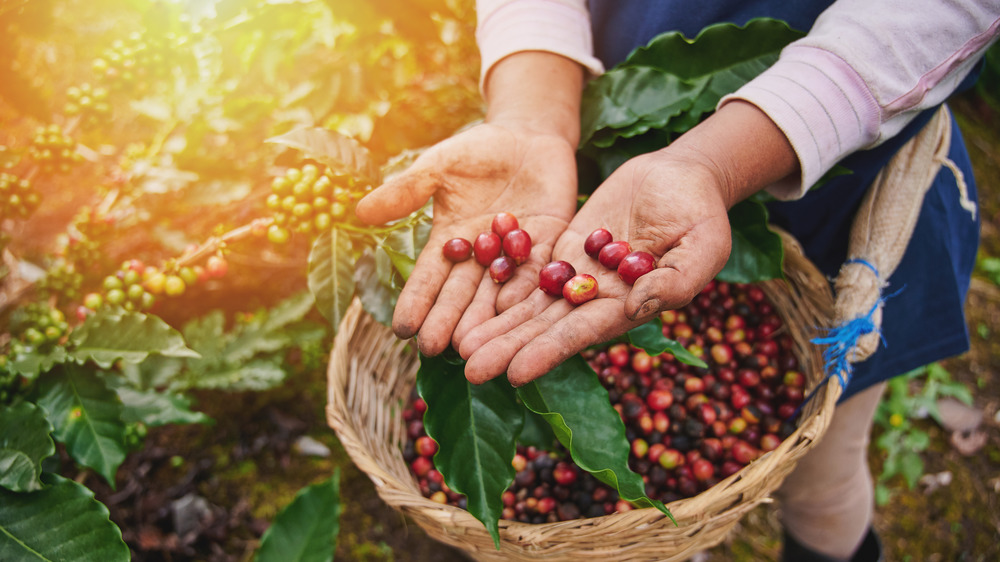The Real Difference Between Arabica And Robusta Coffee Beans
If you're a coffee drinker who loves to try out different brews, chances are you've found yourself skimming various labels trying to decipher what type of cup those beans will actually yield. One big piece of information you need to be aware of is whether the beans you're eyeing are Arabica or Robusta beans — simply put, Arabica beans are more expensive and brew up with a smoother, sweeter flavor, while Robusta beans are often more bitter and pack a serious caffeine punch (via The Pioneer Woman).
While exact numbers vary by year, according to Enjoy Java, the approximate split for worldwide coffee production is about 60 percent Arabica and 40 percent Robusta. The composition of the coffee beans themselves plays a big role in giving Arabica that sweet, creamy taste. As Coffee Chemistry explains, Arabica beans contain nearly twice the concentration of sugars as well as almost 60 percent more lipids compared to Robusta. They also have a lower caffeine content, making for a smoother sipping experience — Arabica beans contain about 1.5 percent caffeine, whereas Robusta beans clock in at 2.7 percent (via The Roasters Pack).
A bean by any other name
The Pioneer Woman states that Robusta beans are generally cheaper simply because they're easier than Arabica beans to grow. It takes half the time to yield a crop (about 2 years vs. the 4 years required for Arabica beans, according to Earth Bean Coffee), and each crop produces a higher yield (via The Coffee Barrister). Plus, as Little Coffee Place reports, the high caffeine content of Robusta beans means they're naturally less appealing to insects, so those crops aren't at as much risk of being nibbled on by critters in the fields.
Though Arabica beans are often described as superior, with Quirky Coffee Co calling them "by far the best type of coffee beans that you can buy," it's ultimately a matter of taste. Robusta beans will put hair on your chest — if you've ever felt pangs of nostalgia for the potent diner coffee that makes you wince with every sip, you just might be a Robusta fan. If you prefer things a little smoother and sweeter, Arabica is probably your jam.
And, if you're in love with your morning cup of Arabica, here's an interesting piece of history: As Bean Poet explains, in the 1700s, the wife of a French Guianese governor fell in love with an ambassador from Brazil, and was convinced to smuggle out some coffee seeds for her paramour. This act ignited the coffee industry in Brazil, now a major producer of Arabica. Talk about devotion to a good cup of joe!

